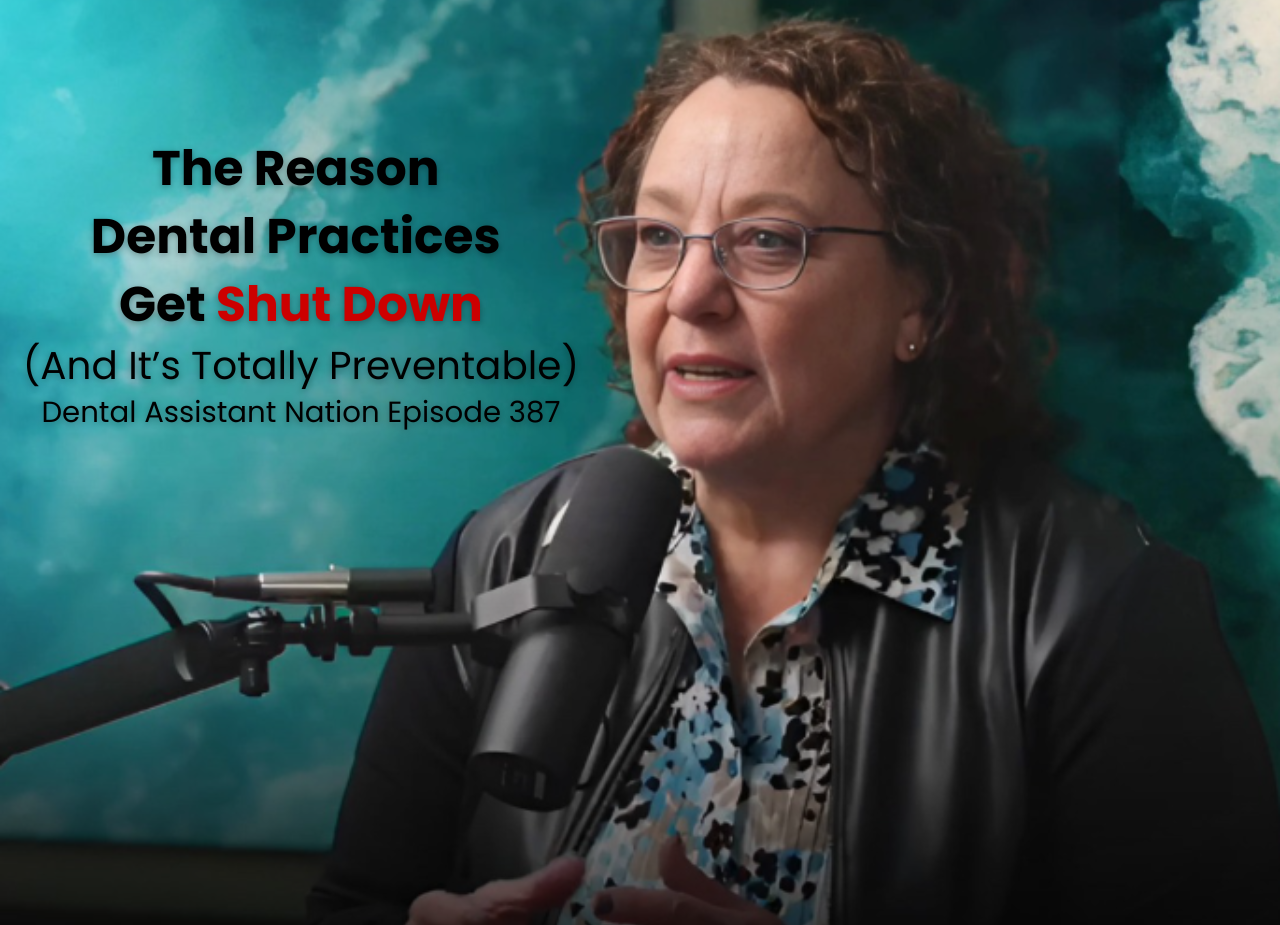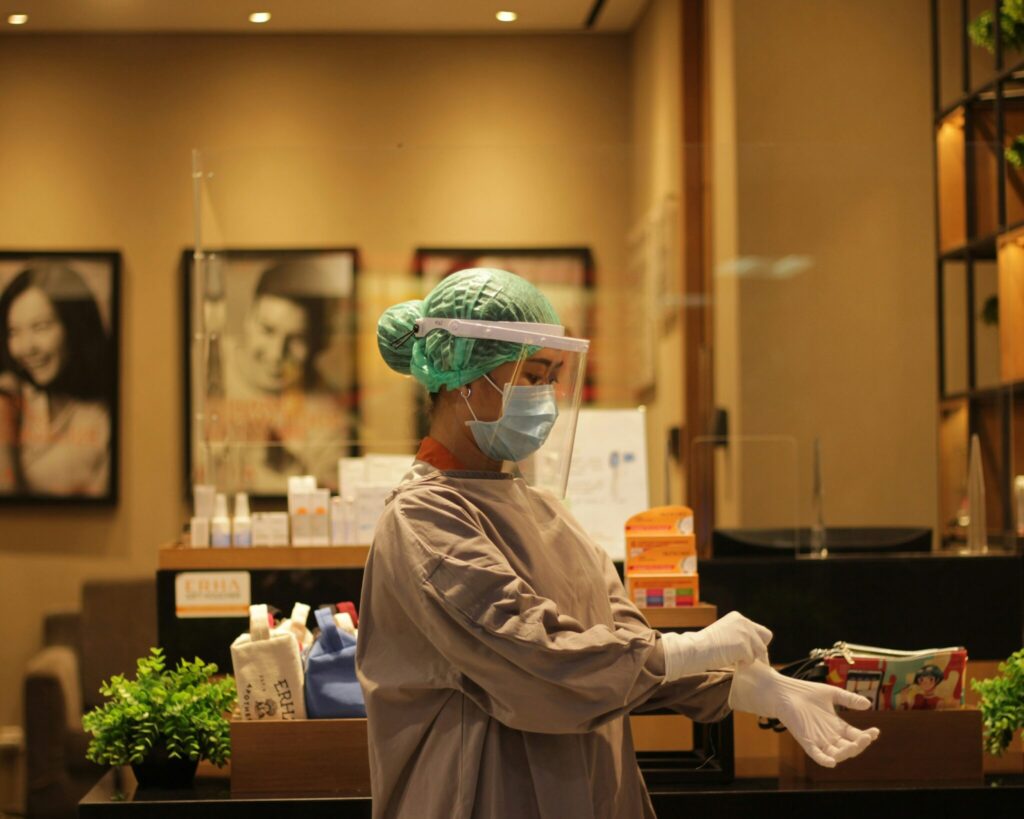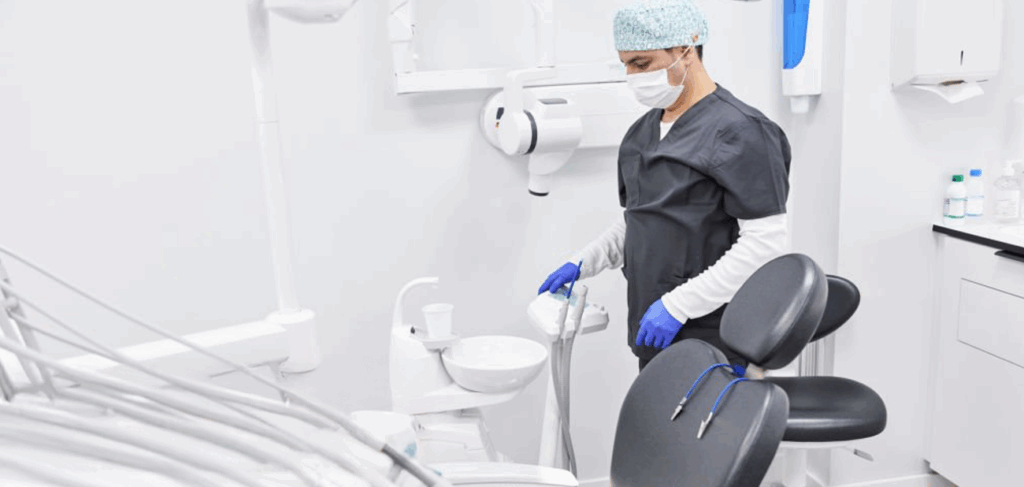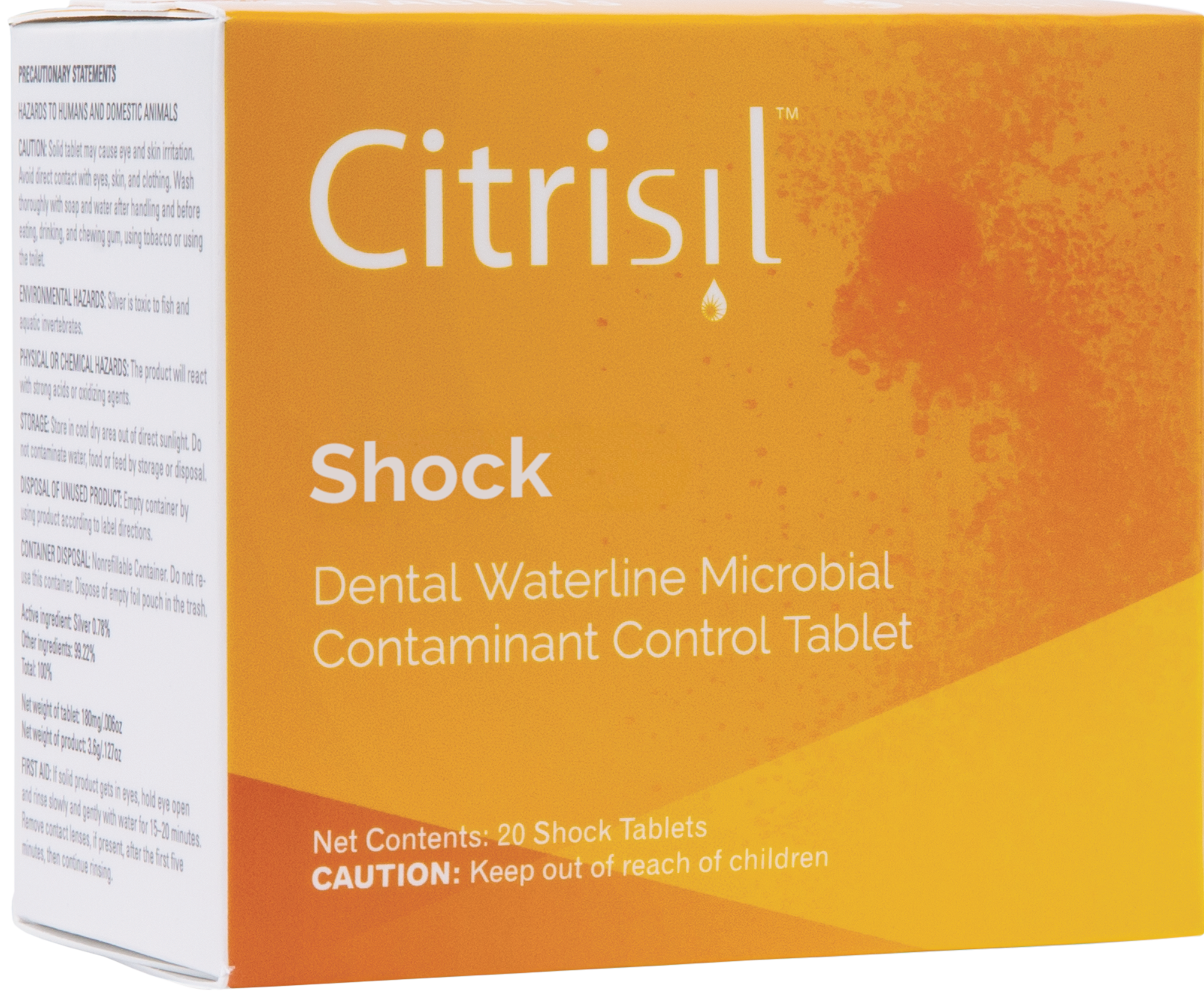Your cart is currently empty!

Dental Assistants and Dental Waterline Safety: Why Education and Confidence Matter

Summary: Dental unit waterline safety is a shared responsibility—but dental assistants are often the front line of defense. In this blog, Sherrie Busby, EDDA, CDSO, CDIPC, shares insights on how education, mentorship, and proper planning empower dental assistants to keep patients safe. Discover why confidence and compliance go hand-in-hand in infection control.
Dental assistants have always played a vital role in keeping dental practices running smoothly. But when it comes to dental unit waterline safety, their role is more critical than ever. In a recent episode of the Dental Assistant Nation Podcast, host Kevin Henry sat down with longtime dental trainer Sherrie Busby to discuss where responsibility for waterline infection control lies—and how assistants can confidently take the lead.
It’s a Shared Responsibility—but Assistants Often Lead the Charge
Sherrie opens the conversation by pointing out something that many dental assistants will relate to: much of their infection control education has been peer-driven and inconsistent. While dental unit waterline treatment isn’t exactly “new,” it’s still a developing area in clinical education—and often misunderstood.
“The information isn’t always right,” Sherrie says. “If the dental assistant is scrappy, if they are interested in learning more, then there are amazing resources out there.”
She emphasizes that education shouldn’t fall on just one person’s shoulders. Ideally, dentists and assistants form a partnership. The dentist encourages continued education and supports infection control practices, while the assistant takes the initiative to learn and implement best practices.
The doctor empowers me, but then it’s my responsibility to seek out what I need.

How to Get the Right Education on Dental Unit Waterlines
Today, there’s no excuse for being in the dark. Industry experts, product partners, and manufacturer reps offer a wealth of training resources. Sherrie suggests dental assistants:
- Follow experts online
- Attend vendor-sponsored training or webinars
- Talk to dental reps about protocols and products
- Research the Instructions for Use (IFUs) for their specific equipment
She also recommends reaching out to other dental professionals, even in neighboring practices, to share knowledge and build mentorship networks.
Make a new friend. See what they’re doing. You can never have too many friends in this industry.
The Role of Companies Like Sterisil
Product partners like Sterisil play a critical role in waterline infection control. However, Sherrie reminds us that dental assistants must still do their homework before adopting a solution.
You need to know your equipment first. Then research the company—ask if it’s the right technology and partner for you.
Sherrie is a strong supporter of the Sterisil® Straw, but she urges every dental team to make decisions based on what fits their equipment and compliance needs, not just word-of-mouth. Though word-of-mouth recommendations are particularly strong in the dental community, it’s important to read the IFUs on your products to ensure everything you’re using works safely together. Sterisil’s product line is specifically designed to work in harmony, but not every product on the market is designed to work with other things.
Social Media for Dental Unit Waterline Safety: Helpful or Harmful?
While dental assistants can (and should) seek opinions from peers, Sherrie cautions against relying solely on social media for clinical guidance. Not all platforms are equal. Instead, she recommends:
- Participating in professional forums or dental-specific groups
- Consulting infection control coordinators within your network
- Asking mentors who’ve successfully implemented compliant systems
In short, combine community insights with evidence-based research.

Confidence Comes from Education
Even when a dentist’s name is “on the door,” it’s usually the dental assistant or infection control coordinator responsible for daily waterline maintenance and testing. That’s why confidence is key—and confidence comes from knowledge.
You can’t be confident about something you don’t know. That’s why education is such a vital part of the whole process.
Once the assistant knows the “why” and “how,” they can follow a clear plan with confidence. Sherrie’s advice: Find a plan. Stick to it. And follow it exactly.
The Stakes Are High with Waterline Safety
When it comes to waterline safety, the risks are real. Practices across the country have been temporarily shut down due to noncompliance, even in states without strict mandates. Inspectors are increasingly asking to see:
- Waterline protocols
- Testing logs
- Maintenance documentation
If your practice isn’t prepared, panic can quickly set in. But Sherrie offers a path forward: “Be the person who says, ‘I don’t know, but let’s find out.’”
That attitude—combined with proactive learning—makes all the difference.
Final Thoughts: Be Thirsty for Knowledge
In a fitting metaphor, Sherrie urges dental assistants to “be thirsty” for knowledge.
“Follow the instructions, do exactly what they say. If your product says do A, then do A,” she says.
Dental assistants are essential in ensuring patient safety, maintaining trust, and keeping practices open and compliant. And while the weight of that responsibility can feel heavy, it becomes manageable—and even empowering—with the right tools and training.
Dental unit waterline safety involves maintaining clean, bacteria-free waterlines in dental chairs to protect patients from infection. It requires regular testing, maintenance, and adherence to CDC guidelines and product IFUs.
Yes—while the dentist may ultimately be liable, dental assistants are usually the ones performing daily tasks related to waterline treatment, testing, and documentation.
Assistants can access webinars, vendor training, online courses, and manufacturer instructions. Infection control experts also offer excellent educational materials. To look at Sterisil’s education opportunities, go to solmetex.com/education.
Dental practices can face temporary shutdowns, fines, or legal action for noncompliance. Even if not mandated in your state, inspectors may still ask for documentation.
Social media can help connect you with peers, but it shouldn’t be your only source. Always verify information with reputable training sources, experts, and manufacturer guidelines.
Share this post:

Related Posts





